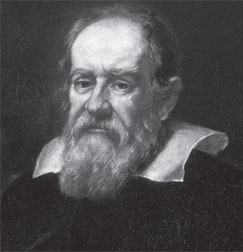Galileo Galilei, a simple man with faith in truth
By Amal Hewavissenti
Galileo Galilei was really a great man. Assuredly, his status as a
leading figure in scientific discoveries fades into insignificance
against his own humanity proved in the real test of his mettle in the
face of the influential church.
Galileo was born in 1564, the year in which the celebrated artist
Michael Angelo died and William Shakespeare was born. Thus, Galileo
Galilei and William Shakespeare were contemporaries each having gained
mastery over science (astronomy in particular) and literature.
Nobody can deny his great stature as one of the world's best
scientists and he always coveted the welfare of the people.
 |
|
Galileo Galilei |
Even though he remained adamant in his views of science and universe
and opposed the suppression by state and the church, he earnestly
believed in the supremacy and the validity of scientific truth.
When Galileo became aware of the accidental discovery of telescope by
Netherlands's scientists, he instantly produced a smaller one for his
astronomical explorations. His own telescope made him capable of forming
epoch making theories on the solar system.
When the astronomer Copernicus had given expression to his ideas
about the “Sun-centered universe” 20 years prior to Galileo's birth, his
book was banned by the church.
Galileo's views on the astronomical phenomena and the works he
published landed him in serious trouble with the state and the church.
He was even forced to acknowledge that he totally posed the theories put
forward by Copernicus in order to avoid torture or even execution.
Declarations
But, in spite of his declarations of this nature in public, he never
altered his real belief. It was not until 1992 that the church finally
acknowledged its misjudgment in condemning Galileo for his theories
about the solar system.
Galileo was much concerned about how he could bring about public
welfare by his theories and discoveries and he had the strength to
sacrifice his life for the welfare of the people.
The scientist had a surprising penchant for painting and he was a bit
of a painter sometimes. His friend Ludowiko, an Halian painter, painted
some scenes in the St. Maria Church in Rome under Galileo's
instructions. Apart from this, he was immensely taken up with writing
poetry and music - a rare inspiration from his father who too was a
musician and a dramatist. Bertolt Brecht composed a drama on Galileo's
life (Life of Galileo) which was successfully staged after five years of
the publication of the book (in 1943). The drama is considered to
reflect Galileo's commitment to the up-gradation of scientific trends of
the time. The drama illustrates how the church, provoked by the ideas by
Galileo, warned him against any progress in ‘revolutionary ideas’ on the
nature of universe.
On his strong resistance to the warnings, the authorities disrupted
his daughter's marriage and he was subsequently held in detention
without a trial. Once, Galileo presented his student Andry with one of
his books which contained all his teachings and details of his
discoveries.
He instructed Andry to disseminate the knowledge throughout the world
while he remained in detention. Andry said in surprise “You're a hero”.
But Galileo, in a state of grave composure replied “This is no act of
heroism. I ask you to do this because it has to be done”.
As he was plunged in a mire of economic problems, he could downright
have agreed to the views held by the authorities and church and have
easily become a wealthy man. His conscience compelled him to stick to
the truth and he made little money by making horoscopes, producing
gadgets for military officials (the military compass for example) and
giving tuition.
Even though he was in continual conflict with the church on grounds
of scientific theories, he was an ardent Christian and had immense faith
in God. The problem was that his observations on universe (movement of
earth and position of sun) dealt a humiliating rebuff to Aristotle's
views but bore out Copernicus’ views.
Observations
Galileo wrote articles concerning the religious factors in matters of
science solely for the benefit of common people but he was rewarded with
severe punishment. Using his observations through the telescope, he
wrote a booklet” Starry Messenger” which conflicted with the church on
the question of the movement of earth. With the publication of the
“Theory of Tides” in 1610, and the observations of the planet Jupiter,
Galileo was instantly called before a jury composed of priests and
professors.
In 1616, the Jury concluded that Galileo's inventions, discoveries
and views were absolute absurdities. Yet, the new Pope (Arbon the viii)
appointed in 1623 had established a friendship with Galileo which could
have earned big funds for him especially for the scientific research.
But Galileo did not exploit this opportunity to make money.
In 1632, Galileo published a book titled The dialogue concerning two
world systems which is considered to be the most appealing book ever
published on astronomy.
The book is a discussion between two philosophers and a priest on the
movement of planets around the sun, the universe and the movement of
earth round the sun.
Pope Arban viii was compelled to ban the book although his friendship
with Galileo became increasingly stronger. The Pope could no longer
speak in justification of his loveable friend because of the opposition
from the church. A special commission appointed accordingly, convicted
Galileo and condemned him to life imprisonment. He had ample opportunity
to betray his ideology and pledge allegiance to the state authorities
and the church in order to regain a better life.
Yet he did not betray his conscience for the sake of material gain
and stuck to truth to the bitter end of life. He was a man of truth even
if he had his own weaknesses in the luxury city of Venice. |


